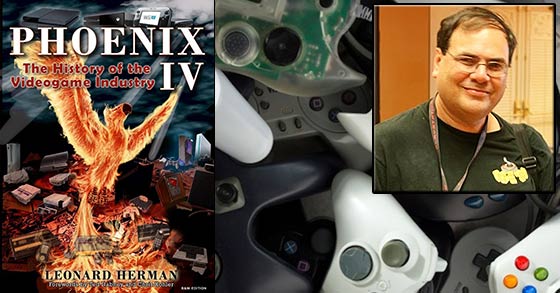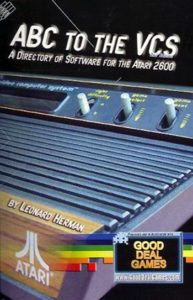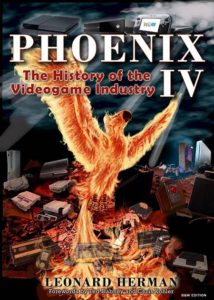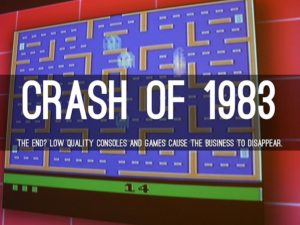Interview with Leonard Herman – The Game Scholar, Phoenix IV and video game history

Not so long ago I got to communicate with Leonard Herman (the writer of the acclaimed Phoenix series of books, which tell us about the history of video games from an unbiased perspective), and the timing couldn’t have been better. You see, Herman’s Phoenix IV: The History of the Videogame Industry book was released just recently. So I had the pleasure of speaking with Mr. Herman about his book and other aspects of the video game industry (if you would like to purchase a copy of Phoenix IV, then you can use the code PHEIV to get 20% off on rolentapress). Furthermore, if you’d like to get in contact with Herman yourselves, you can reach him at The Game Scholar and via the Phoenix IV Facebook page (links are also provided at the bottom of this interview).

Say hello to Mr. Leonard Herman (the author of “Phoenix IV: The History of the Videogame Industry”, “Before the Crash”, “Classic Home Video Games” with many more). – Picture credit Brettweisswords.
Justin TGG:
So, go ahead and introduce yourself, for those in the audience who aren’t familiar with you.
Leonard Herman:
Hello, my name is Leonard Herman, and I wrote the book Phoenix IV: The History of the Videogame Industry. This is the fourth edition of a book that was first published in 1994, with subsequent editions in 1997 and 2001. In 2008, Game Informer magazine rated it as the second best video game book ever published. Electronic Gaming Monthly magazine called me The Game Scholar.
Justin TGG:
Besides your series of Phoenix books, what else have you done in the video game industry?
Leonard Herman:
My first book was ABC To The VCS, a Directory of Software for the Atari 2600. I’ve also written articles for Electronic Gaming Monthly, Game Informer, Games magazine, Edge, Video & Computer Gaming Illustrated, Classic Gamer Magazine, and Manci Games. I also had a short-lived column in the Official US PlayStation magazine. I also contributed material for the books Supercade, The Video Game Explosion, Before the Crash, the Encyclopedia of Video Games and the Encyclopedia of Computer Science. I edited a magazine called Video Game Trader. I published books by Ralph Baer (inventor of the videogame console) and Bill Kunkel (first video game journalist), as well as one about the history of the software company, Infocom. I’ve also been on the Advisory Boards for Videotopia, Classic Gaming Expo and The National Video game Museum. I also appeared in the movie The King of Arcades as well as a few episodes of G4’s Icons.
Justin TGG
Your first book in the Phoenix series: Phoenix: The Fall and Rise of Videogames was originally published in December 1994, quite some time ago. At the time of release, it was one of the first books that talked about video games in a serious light, correct?
Leonard Herman
Correct. There had been a few general books about video games that included brief chapters on the history and there was one book for children called Screen Play. And the final issues of A.N.A.L.O.G. Computing (a magazine dedicated to Atari computers) featured an unfinished, multi-part series about gaming history written by Bill Kunkel and Arnie Katz. And David Scheff published Game Over while I was completing Phoenix, but that was basically a history about a specific company (Nintendo). There were no comprehensive books for adults about the history of video gaming until Phoenix.

ABC to the VCS was the first book that Herman ever worked on, and it was written by him back in 1983.
Justin TGG
What inspired you to write the original Phoenix book back in the day? If I recall, the video game industry wasn’t taken very seriously during that time.
Leonard Herman
I began my first book, ABC to the VCS around 1981. There were so many games coming out for the VCS that I figured there should be a directory that would give people an idea what the games were about. Unfortunately, a book like that could never be completed with new games constantly being released. Then the crash hit, which rendered the book useless. After Nintendo released the NES I considered writing a similar book for that system, but I wasn’t a fan of Nintendo and didn’t even own the console or any of the games, and I didn’t relish the thought of starting then. But I had so much information in the form of magazines and press kits I wanted to write something about video games. And since there wasn’t a comprehensive and accurate history available, I decided that would be a good topic. So I began writing Phoenix around 1987. My plan was to publish it in 1992, which I considered was the 20th anniversary of video games.
As you said, the industry wasn’t taken seriously. I sent queries to several publishers and only one, Tab Books, responded with interest. But then I never heard from them again. I still have the rejection slip from Prima Books where they didn’t believe there was any interest in the history of video games. As you may know, they’ve certainly reversed course since then.
Justin TGG
Given the name of the book, Phoenix, I’m assuming the original edition talked a lot about the video game crash of 1983 and since then, they’ve risen higher and brighter than ever. Do you feel as though there will ever be a time where that metaphorical Phoenix will ever crash and burn again?
Leonard Herman
I called the book Phoenix because the crash of 1983 was still very fresh in people’s minds. Given that the book went up to 1993, the crash was exactly the midpoint in the history of gaming. Today, the crash is just a blip in the industry’s history, which is why I retitled the book’s subtitle to The History of the video game Industry. I retained the title Phoenix, simply because of its association with the previous books.
Could there be another crash? Nothing is ever absolute, but I doubt it. The industry is just too big now. The form of electronic games may change with the evolution of technology but there will always be a market for them.

“Phoenix IV: The History of the Videogame Industry” is a really good +800 pages long book about video game history. So if you’re into video games, then you should pick up this book with no doubt.
Justin TGG
So let’s talk about the newest edition of Phoenix. What can we expect from this new edition?
Leonard Herman
First of all, all of the chapters have been rewritten and now include the history of the Japanese industry in detail as well as the consoles that have been released in Europe. At the suggestion of a publisher that I originally had a contract with, I removed the chapter on the history of computers, since the book doesn’t cover computer gaming. I also added subheadings within each chapter.
Fifteen new chapters have been added for the years 2001-2015. I also added one chapter in the Appendix that’s solely about the history of Tetris, because that story was too long to be included within the chronological text of the book. The book is also heavily footnoted with additional content and information that fall outside the sphere of the chapter.
I also re-shot all of the photos. There are over 1,000 photos in the book and all are in high-resolution (although in black & white).
Finally, outside editors and subject matter experts have reviewed the book so the amount of grammatical and factual errors have been kept to a minimum. Unfortunately, in a book this size (828 pages) some errors do manage to get past all of us. As I have done with all editions of this book, I welcome readers to let me know what might be wrong and I’ll fix them in a later edition. I have also posted an errata on the Rolenta Press website, which lists errors that have been found since this edition was published.
Justin TGG
What else are you currently working on right now that you can tell us?
Leonard Herman
I’m now working on a “deluxe” color edition of the book, which I hope will be available soon. I also star in a YouTube show called The Game Scholar that people will hear more about as we build and release a large body of content. I’m just getting started with that.
Justin TGG
Something I’ve noticed in my academic career is that academia thinks extremely highly of arts like Acting, Film, and other visual arts that we’re familiar with. Even so, academic talks on video games—at least in a positive light—are extremely rare. Why do you think that is?
Leonard Herman
I don’t agree. I believe that academia is coming to terms with video games and there are several academic publishers, such as MIT Press, that are constantly publishing books on the subject. And academic professors such as Raiford Guins and Mark J. P. Wolf are continuously teaching the subject and writing books about it. I was even in communication with Bloomsbury Academic, which was considering publishing the book. The book was sent to six academics for peer review.
My gripe with video game academics is that they think timeline books like mine and Steven Kent’s are no longer necessary and that video game history should include “interpretative assessment.” According to Erkki Huhtamo, a professor at the University of California, Los Angeles in the Departments of Design Media Arts and Film, Television, and Digital Media, video game history should include “a critical and analytical attitude toward the subject.” Whatever that means. While there are plenty of great books that expand on specific subjects within the history of video games, I believe that an all-encompassing history of video games in a neutral tone is just as important. And people outside of academia agree with me. Many reviews that I’ve read about my book state that Phoenix is the perfect book to start any study of video game history.

Video games and video game consoles has been released in many different shapes and forms since the dawn of Gaming.
Justin TGG
What do you think separates games from other art forms?
Leonard Herman
Videogames are the only art form that is interactive. You can enjoy looking at a painting or listening to music or reading a book or watching a movie. In all these arts you can imagine changing something about it but in the end the book or painting or music will be the same every time you look or watch or listen (of course musicians can change how they play a song, but I’m referring to the end-user). The same game can be different every time it’s played.
Justin TGG
Do you have anything else to tell the audience in regards to your new book or any other topic on the table?
Leonard Herman
One issue about Phoenix is that it is a dry book to read. It was purposely written that way. While many have read it from cover to cover, it could be viewed as an encyclopedia. Regardless of where you stand, if you love video games and want to learn about them Phoenix is a great start.
I thank Mr. Herman so much for his time, and I hope he’s able to continue his aspirations in the future. I respect him for the work he’s put into thus far, and I wish him all the best.
Links:
The Game Scholar Facebook Page
Phoenix IV – The History of the Videogame Industry Facebook Page
Phoenix IV Amazon Link
Credit:
Robin Ek – Editor
***Disclosure***
I have a mutual friend in common with Leonard Herman. However, I do not know Herman personally. There were no terms in which I conducted the interview and I personally believed this topic was worth talking about.
![]()
Justin Easler
Senior editor
The Gaming Ground
Twitter: @masterjayshay
More by Justin Easler:
- “Monster Energy Supercross – The Official Videogame 5” is coming to PC and consoles on March 17th, 2022
- Ubisoft’s E3 2019 press conference – A pretty decent presentation for the most part
- Square Enix E3 2019 press conference – Probably Square Enix’s strongest E3 in a long time
- Bethesda’s E3 2019 press conference – Some pretty awesome games but not so many surprises
- EA’s E3 2019 press conference – More of what you expect, yet still underwhelming
Tags: Gamers, Gaming, Leonard Herman, Phoenix IV, The game scholar, Video game books, Video games






















